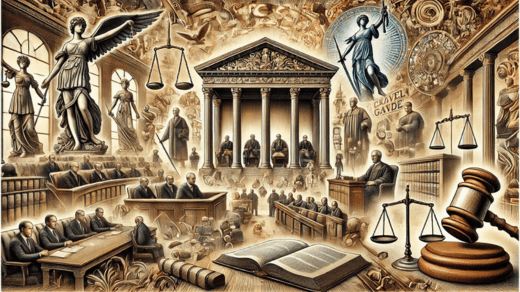1–10: Basics of Constitutional Law
What is constitutional law?
The body of law interpreting and applying a nation’s constitution to governance and rights.
What are the primary objectives of a constitution?
To enumerate government powers, establish institutional frameworks, and safeguard citizens’ rights.
What is the doctrine of the rule of law?
A principle stating that all individuals and entities, including the government, are subject to the law.
Read Also:
- https://insightfullawhelp.com/20-key-questions-about-constitutional-law-and-their-practical-answers/
- https://insightfullawhelp.com/25-faqs-about-constitutional-rights-everyone-should-know/
- https://insightfullawhelp.com/30-constitutional-law-questions-for-students-and-professionals/
What is judicial review?
The power of courts as a judgment whether laws or acts by the government be constitutional or not.
Sources of constitutional law
Sources are either written constitution, judicial interpretation of it, conventions, or amendment to the constitution.
What is the difference between codified and uncodified constitution?
Codified constitutions exist in one document; an uncodified constitution is based on several such sources as statutes and conventions.
What are fundamental rights?
Rights placed in a constitution to hold government power in check.
What does separation of powers mean?
Separation of governments into three entities: legislative, executive, and judicial.
What is popular sovereignty?
The basis that the federal government gets power from the populace.
What is checks and balances?
Checks balancing so no individual entity of a branch of the government can exert its power upon another.
11–20 Government Structure and Power
What does federalism?
The division between the central, regional governments holding some power above the other.
What is a unitary system?
A system where all governmental powers are concentrated in a single body.
What is the role of a preamble?
It establishes the values, principles, and the intent of the constitution.
What are reserved powers?
Powers explicitly set aside for one level of government, typically the state or province.
What are implied powers?
Powers that are not specified but are implicit for exercising constitutional authority.
What is the supremacy clause?
A constitutional provision declaring that federal law supersedes conflicting state laws.
What is the importance of constitutional conventions?
Unwritten conventions that govern constitutional practice, especially in common law jurisdictions.
What is ultra vires?
It limits governmental action to powers conferred by the constitution, and anything beyond this is ultra vires and therefore invalid.
What is the role of the legislature in constitutional government?
To enact laws within the purview of constitutional power.
What is the role of the judiciary in constitutional governance?
To interpret the constitution, to settle disputes, and to make sure laws pass constitutional muster.
21–30: Rights and Liberties
What are civil liberties?
Those rights, like freedom of speech and religion, freedom of assembly, that government shall not interfere with.
What is equal protection under the law?
The doctrine that all persons must receive the same protections and rights from the law.
What is due process?
A guarantee of fair legal proceedings before deprivation of life, liberty, or property.
What is the right to privacy?
The constitutional protection against unwarranted government intrusion into personal matters.
What is freedom of speech?
The right to express opinions freely, within reasonable legal boundaries.
What is the freedom of religion?
The right to practice any religion or none, free from governmental interference.
What are the limits of constitutional rights?
Rights can be restricted for public safety, order, or national security, if the restrictions are reasonable and lawful.
What is double jeopardy?
A constitutional right that prohibits a person from being tried twice for the same crime.
What is the right to legal counsel?
The right of a person to have a lawyer in court.
What is habeas corpus?
A right that prevents a person from being detained illegally.
31–40: Contemporary and Sophisticated Concepts
How do constitutional amendments work?
Constitutional provisions may be changed or clarified through formal process, as detailed in the constitution.
What role does international law play in constitutional law?
Domestic constitutional provisions can be impacted by international treaties and norms. These are usually felt in areas like human rights.
What is a constitutional crisis?
A scenario in which the processes of constitution breakdown, pitting branches against one another, or levels against each other.
Constitutional law addresses emergency scenarios.
Most constitutions grant temporary emergency powers to the government, but with safeguards that protect rights.
What is substantive due process?
A principle that laws themselves must be fair and not just the procedures enforcing them.
What is procedural due process?
Guarantees that legal procedures are conducted fairly and transparently.
What is the role of precedent in constitutional law?
Judicial decisions shape future interpretations and applications of constitutional provisions.
What is an entrenched provision?
A constitutional clause that is very difficult or cannot be amended at all.
How has technology impacted constitutional rights?
Even the issues of digital privacy, surveillance, and freedom of expression are increasingly being treated under constitutional structures.
What is the relationship between democracy and constitutional law?
Constitutional law gives democratic governance a legal underpinning, ensuring accountability and protecting rights.

